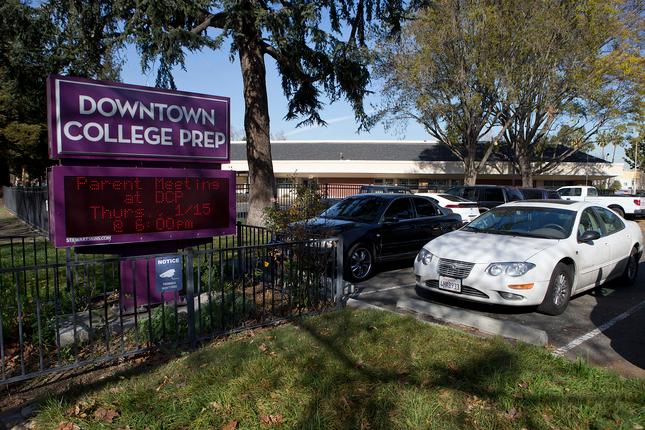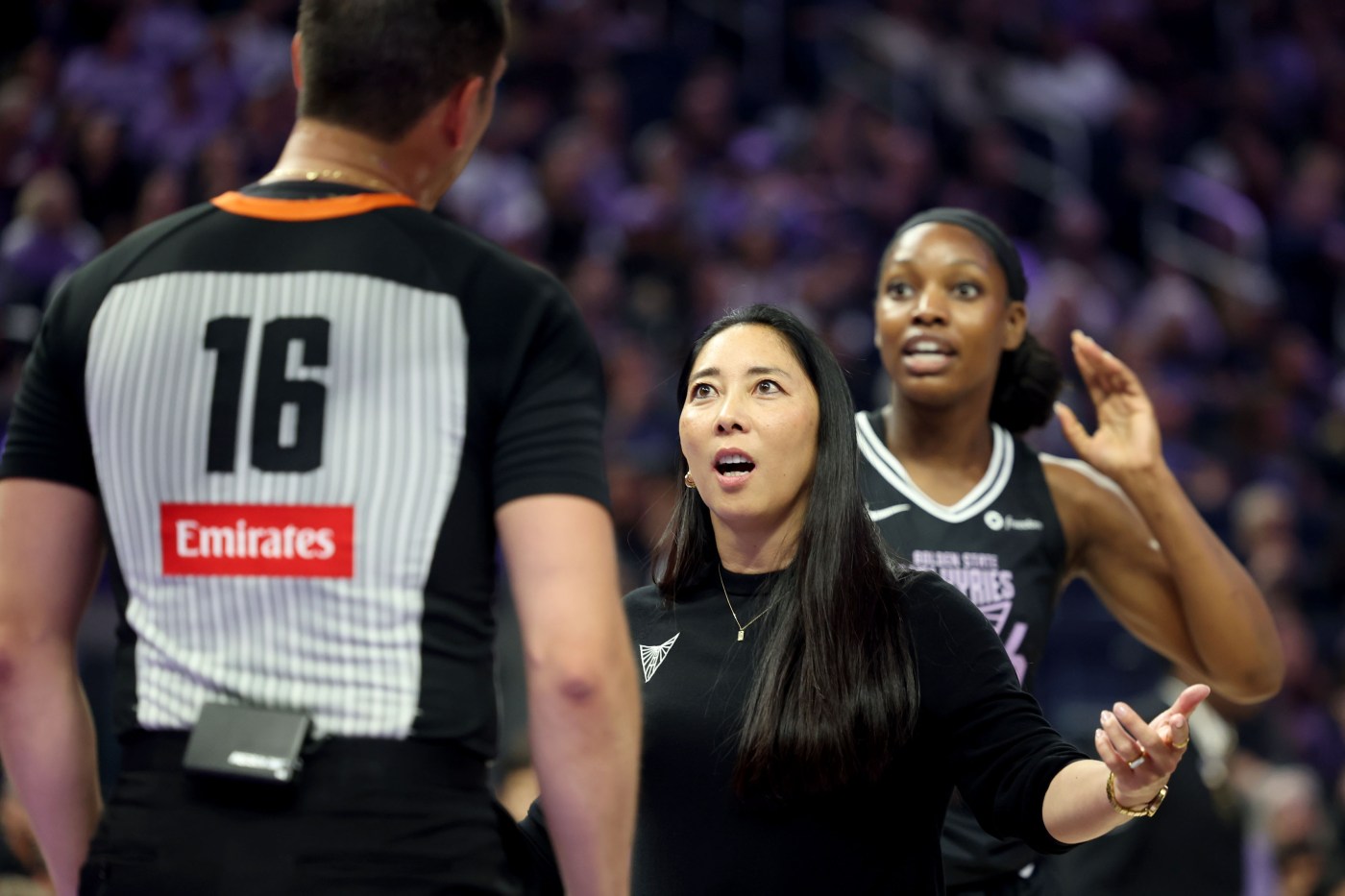SAN JOSE — When the school year wraps up next month, Downtown College Prep will close its three remaining campuses — a decision made by the school’s board of directors that was driven by declining enrollment and financial woes.
It marks the end of an era for Santa Clara County’s first charter school system, which was founded more than two decades ago and originally operated out of a local church and a YMCA. At its peak, the charter school system had four campuses — two middle schools and two high schools — and catered largely to San Jose’s Latino population and low-income families.
Related Articles
A chat, a snack and a chance to cool down: How one California school district kept far fewer kids from getting in trouble
Hundreds of tech, biotech, oil, school workers lose Bay Area jobs
New facility designed to ground Cupertino, Sunnyvale students in robotics
‘It’s absolutely critical’: West Contra Costa Unified eyes tax renewal
Opinion: Eight former Oakland school board members say students are casualties in teacher-union political power grab
Nina Rodriguez, an instructional coach at DCP, described the closure as “truly a heartbreak.”
“It was very much an initiative to serve students who either did not have as much access to resources or easily fell under the radar systemically,” Rodriguez said in an interview. “All the work we’ve done in the past 25 years has been a huge learning experience of what works for families, what gaps exist and how our institution has changed over the years to better understand what students need to successfully graduate from high school, successfully apply (for college) and then successfully thrive at four year institutions.”
DCP boasts a six-year college completion rate of 54% for its alumni, compared to 14% of low-income students nationally. More than 80% of the charter school system’s students are considered low income.
Signs that DCP was in trouble became apparent last year when just months before the end of the school year DCP announced it would be closing the Alum Rock High School campus in June over declining enrollment and a budget deficit. The decision affected more than 200 students who would have to transfer elsewhere.
Soon after, unionized teachers issued a vote of no confidence in then-CEO Pete Settelmayer, citing a lack of transparency and respect for the families affected by the closure. Settelmayer resigned several months later.
In January, DCP’s Board of Directors drove the final nail in the coffin, sending out a letter that the last three schools, which serve roughly 950 students, would close for the same reasons.
“Over the course of the last several years the combined enrollment of the DCP organization has suffered significant declines, which has put the organization in a precarious financial position,” the board wrote in the letter. “The organization has taken significant steps to mitigate the situation over the last 12-18 months, including the closure of one High School, staff reductions and discussions with debt holders.”
Nearly 100 DCP employees received layoff notices in April — a figure made public this week in state filings.
A fact sheet posted on DCP’s website said the charter school system owes more than $30 million on its Monterey Road campus, which houses El Camino Middle School and El Primero High School as well as administrative offices. DCP also faced a $4.5 million budget deficit for the 2024-25 fiscal year.
Declining enrollment — a trend seen across districts in California that’s largely driven by lower birth rates and families escaping the state’s high cost of living — has also been a problem for DCP, whose funding is dependent on its enrollment numbers. The charter school system said it would need to enroll more than 400 new students to help its funding gap. DCP officials could not be reached for comment.
Sal Williams, who has been an English teacher at DCP’s El Primero High School the last decade, said when the teachers unionized in 2020 — an uncommon occurrence in charter schools — it was a “battle to get fiscal transparency from DCP management.” When they finally did, he said that financial picture was much worse than what they were being told.
“I’m not a real estate person, I’m not a math person,” Williams said in an interview. “At the end of the day I’m just an English teacher, but I don’t know if I’d be taking out bonds in the figures of millions of dollars if I didn’t have a payback plan.”
Both Rodriguez and Williams, who are co-presidents of the teacher’s union, see DCP’s closure as a loss for the students and families it serves. The smaller campuses, they said, provided more individualized support for students who might have otherwise fallen through the cracks. Williams said he felt like he knew all of the students on his campus regardless of whether they were in his class.
“I think having a school where mostly everyone knows everyone’s name you can really support the student and by extension the family and the entire community,” Williams said. “I think that’s what DCP did so well both on this side of San Jose, but also the Alum Rock community. Losing that is really hard for both students, families and by extension the communities.”





